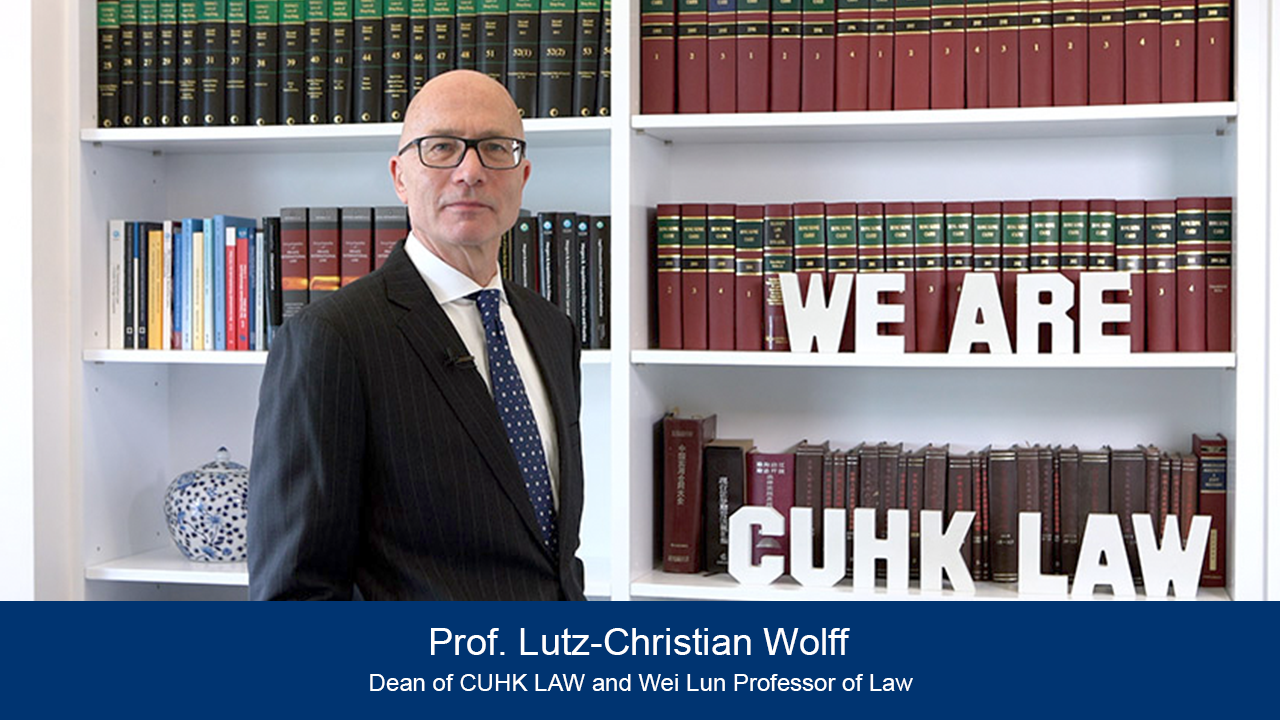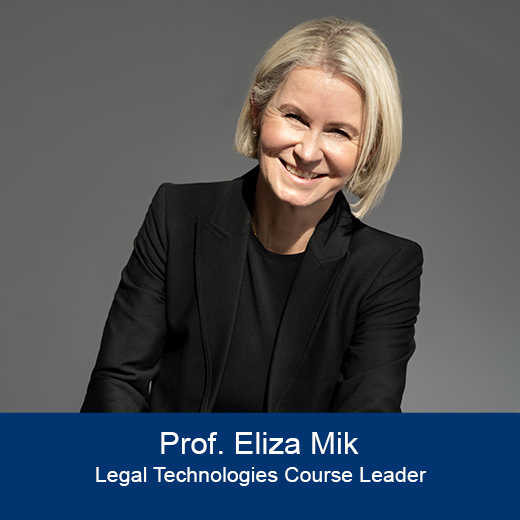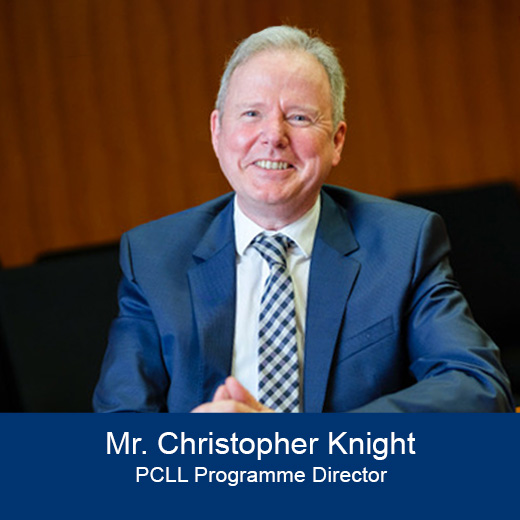Join Us – We are CUHK LAW!
Law & Technology at CUHK LAW
Technology has developed at a breathtaking speed over the past ten years. As a result also legal work has changed dramatically. Much work that was previously done by lawyers is now done by machines. Examples are smart contracts, e-discovery, e-due diligence, legal forensics and cyber investigations as well as online dispute settlement. Technology will become even more dominating in the years to come. Legal education, legal research and legal practice must recognize the involved changes and act accordingly.
CUHK LAW is consequently offering courses to ensure that our students are on top of the Law & Tech development. Furthermore, many CUHK LAW colleagues are conducting cutting-edge research in different Law & Tech areas.
Find out from our professors, students and alumni how technology is changing the legal world and what this means for legal education and skills training, research as well as practical work.









Law & Technology Research and Teaching
Law & Technology research at CUHK LAW is led by the Centre for Financial Regulation and Economic Development (CFRED) under the Executive Directorship of Professor David C. Donald. Currently, the focus of CFRED’s work is on FinTech, RegTech and LawTech. CFRED investigates applications of data analytics, machine learning and distributed ledger Law & Technology (‘blockchain’ or ‘DLT’) in its application to finance, legal practice and regulation. CFRED has created a blog called ‘Machine Lawyering’ to gather leading interdisciplinary commentary on the areas sketched above. The Machine Lawyering blog features over 300 authors, making it a prime information source reflecting the latest developments in Law & Technology.
On 16-18 January 2020 CFRED organized with great success the first conference on Machine Lawyering: Digitally Reconceiving Contracting, Regulation and Propertyat the CUHK Graduate Law Centre. On 14-16 January 2021 CFRED held a second conference online titled Machine Lawyering: Human Sovereignty and Machine Efficiency. Academic and practice leaders in the field from around the world participated in both conferences. “The success of the conferences mirrors the global recognition of the importance of Law & Technology as core to both economic and legal development. The conference will be repeated as an annual event so as to create a forum to exchange ideas on the latest developments and to present cutting-edge research,” Professor David C. Donald explains. “Digital transformation is revolutionizing every industry, and its impact on the financial and legal services are well-known examples. We are very pleased to, and will continue to, provide an extraordinary platform to present CUHK LAW’s strength in Law & Technology and engage leading experts to deliberate the interactions between law, technologies and human behaviours”, adds Professor Jyh-An Lee the co-organizer of the conferences.
CFRED’s research initiative has produced a number of publications on DLT, including David C. Donald& Mahdi Miraz, Multilateral Transparency for Securities Markets through DLT, 15 Fordham Journal of Corporate & Financial Law (2019), 97; David C. Donald, Smart Precision Finance for Small Businesses Funding in European Business Organization Law Review (2020), 1; Robin Huang, The Regulation of Initial Coin Offerings in China: Problems, Prognoses and Prospects, 19 European Business Organization Law Review (2018), 465 (with Hui Deng, Qingran Wu); Robin Huang, Online P2P Lending and Regulatory Responses in China: Opportunities and Challenges, 19 European Business Organization Law Review (2018), 63.
In 2017 CUHK LAW, with partner institutions at the University of Cologne, Germany, and Jilin University, PRC, have embarked on a collaborative research project exploring the cutting-edge topic “Big Data and Courts in China”. As a collaborative research project which leading academics and practitioners from various jurisdictions have joined, the project seeks to offer fresh insights by adopting empirical, comparative and interdisciplinary methods. CUHK LAW Professor Chao Xi has co-edited a special issue of The China Review, a leading peer-reviewed journal in the area of China studies, titled Data-Driven Approaches to Studying Chinese Judicial Practice. Three international conferences of this collaborative research project have been hosted in the cities of Hong Kong, Changchun, and Cologne in 2017, 2018 and 2019, respectively. The 2020 conference has been re-scheduled to take place in 2021 at CUHK LAW.
On 28-29 November 2019 a conference co-organized by CUHK LAW, the Applied Research Centre for Intellectual Assets and the Law (“ARCIALA”) at the School of Law, Singapore Management University (SMU), and the Max Planck Institute for Innovation and Competition (Munich) was held at SMU School of Law. Under the leadership of Professor Jyh-An Lee the conference brought together a group of legal and technology experts from Asia, Europe, and the United States. Conference participants discussed the latest developments and the newest ideas associated with AI and different categories of IP, i.e. copyright, patents, and trade marks from various perspectives, such as law, economics, computer science, history, and innovation policy. Professor Lee’s co-edited book Artificial Intelligence and Intellectual Property was published by Oxford University Press in 2021. Professor Lutz-Christian Wolff’s article, Artificial Intelligence ante portas: The End of Comparative Law?, published by The Chinese Journal of Comparative Law (OUP) in February 2020 was listed amongst The Best of 2020 Law Journals from Oxford University Press.
Professor Stuart Hargreaves and Professor Normann Witzleb work amongst other things on the impact of new technology on and the interaction with data privacy. Professor Hargreaves’s publications include Who Decides What is ‘Personal Data’? Utilizing the Access Principle with Telecommunications and Internet Providers in Hong Kong” (with L. Tsui), 13 International Journal of Communication (2019), 1684; IP Addresses as Personal Data Under Hong Kong’s Privacy Law: An Introduction to the Access My Info HK Project (with L. Tsui), 25(2) Journal of Law, Information, & Science (2017); Data Protection Regimes, in Anglim (ed.), Privacy Rights in the Digital Age, (New York: Grey House Publishing, Inc., 2016). Professor Normann Witzleb’s co-edited book (with M. Paterson & J. Richardson) on Big Data, Political Campaigning and the Law: Democracy and Privacy in the Age of Micro-Targeting, was published by Routledge in 2020.
The Legal Implications of the Platform Economy Workshop II co-hosted by CUHK LAW, the University of Hong Kong (HKU) Faculty of Law, and the City University of Hong Kong School of Law was held on 16 September 2019 at CUHK Graduate Law Centre. This workshop was one of the two events on law and the platform economy project funded under the Eurasia-Pacific Uninet (EPU) program in Austria, in which Professor Jyh-An Lee was a co-investigator. Workshop I had been held in Danube-University Krems Austria on 24 June 2019, followed by the Workshop II at CUHK LAW. Distinguished researchers from Asia and Europe joined CUHK LAW Professors Sandra Marco Colino, Stuart Hargreaves, Robin Huang, Jyh-An Lee, and PhD student Ms. Songyin Bo for an exchange of research findings and discussions of recent developments.
CUHK LAW has been co-organizing the annual Intellectual Property (IP) Conference with the United States-China Intellectual Property Institute (USCIPI) and the Asian Innovation and IP Society (AIIPS) since 2017. Policymakers, business leaders, prominent practitioners, and distinguished academics discuss issues associated with IP and new technologies, such as artificial intelligence, big data, blockchain, 3D printing, biomedical technologies and pharmaceutical inventions. CUHK LAW faculty members have published widely on IP and technology. For example, Professor Jyh-An Lee has published on the relationships between IP and a wide variety of new technologies, such as digital platforms, big data, communications technologies, pharmaceutical inventions, etc. His recent publications in this field include Shifting IP Battlegrounds in the U.S.-China Trade War, 43 Columbia Journal of Law & the Arts (2020), 147; Tripartite Perspective on the Copyright-Sharing Economy in China, 35 Computer Law & Security Review (2019), 434; Licensing Open Government Data, 13 Hastings Business Law Journal (2017), 207; Implementing the FRAND Standard in China, 19 Vanderbilt Journal of Entertainment & Technology Law (2016), 37.
Internet and communications network governance covers a broad range of issues such as domain name dispute resolution, digital censorship and surveillance, cybersecurity, telecommunications law and policy. CUHK LAW Professors Bryan Druzin, Gregory Gordon, Jyh-An Lee, and Sandra Marco Colino have produced impressive output on these topics. Examples are Marco Colino, A History of Competition: The Impact of Antitrust on Hong Kong’s Telecommunications Markets, 29 Fordham Intellectual Property, Media & Entertainment Law Journal (2019), 931; Druzin &; Gordon, Authoritarianism and the Internet, 43 Law & Social Inquiry (2018), 1427; Lee, Hacking into China’s Cybersecurity Law, 53 Wake Forest Law Review (2018), 57; Druzin, Censorship’s Fragile Grip on the Internet: Can Online Speech be Controlled?, 49 Cornell International Law Journal (2016),369; Lee & Liu, Real-Name Registration Rules and the Fading Digital Anonymity in China, 25 Washington International Law Journal (2016), 1.
Professor Bryan Mercurio’s research project on cross-border trade in data is funded by the Policy Innovation and Coordination Office’s scheme for Public Policy Research. The project aims to explore whether it is necessary for Hong Kong to develop a comprehensive data policy in order to assist the territory in realizing its ambition to become a regional fintech hub in addition to the financial and logistical gateway to China, and if so what shape the policy should take. The project, which ran from February 2020 to February 2021, featured several seminars and workshops and aimed to produce an issues paper, edited collection and final recommendation report.
Professor Kevin Cheng, Dr. Natasha Pushkarna, and Ms. Sayaka Ri designed a sentencing calculator based off their published research Judicial Disparity, Deviation, and Departures from Sentencing Guidelines: The Case for Hong Kong, 17(3) Journal of Empirical Legal Studies (2020) 580. Sentencing guidelines are set out for drug trafficking by the Hong Kong Court of Appeal where a range of sentence is provided based on the range of the quantity of drugs—e.g. 50 to 200g of cocaine = 96 to 144 months of imprisonment. Observing the continued existence of judicial disparity in sentences for drug trafficking despite these guidelines, they devised a calculation from drug tariffs to estimate the sentence based on the exact quantity of drugs. That formula offers an accurate starting point for judges to use when determining a sentence for a drug trafficking offence. For ease of use of this formula, they developed an online calculator which allows for fast determination of the arithmetically derived sentence starting point for Trafficking in Dangerous Drugs offences where users select the drug type and input the quantity of drugs. It also calculates the sentence after sentence discounts for guilty pleas. You can find the calculator here:
https://www.law.cuhk.edu.hk/app/sentencecalculator
CUHK LAW pays great attention to keeping its teaching up to the latest standards. In this regard new technologies are present in both curriculum design and teaching delivery.
Various courses address different features of the Law & Technology theme from a subject-specific point of view (e.g. online dispute resolution, AI and IP law, smart contracts, e-due diligence). Moreover, in order to prepare CUHK LAW students for their professional careers, where technologies are playing an increasing role, CUHK LAW offers courses on Legal Technologies at the LLB and JD level:
- LAWS 3456 – Legal Technologies (for undergraduate students)
- LAWS 6089 – Legal Technologies (for postgraduate students)
A course on practical aspects of legal technologies will be delivered starting from 2021-22 by a practicing solicitor to PCLL students. Furthermore, an elective course on the role of legal technologies in mainland China has recently been added to the LLM programme in Chinese Business Law.
CUHK LAW Dean Lutz-Christian Wolff commented in 2019 EduTECH Asia on the use of technology for teaching purposes: “Technology has become a very important part of modern teaching and research activities…. Technology is definitely enabling systematic change in pedagogy. Technology multiplies pedagogical options and thus moves teaching pedagogy forward. At the same time it must be ensured that technological options are not pursued just because technology is available. In other words, the pedagogical viability of particular technology must be assessed with great care in each case given the particular circumstances.”
CUHK LAW regards the use of innovative technologies as key to achieving teaching excellence at all levels. Various course leaders have successfully adopted or are experimenting with the introduction of modern technology-based modes of delivery underscored by research such as the project on Flipped Classrooms for Legal Education, the production and use of online micro modules, and course delivery via virtual online collaboration using Zoom. More information on teaching excellence at CUHK LAW is available at here.